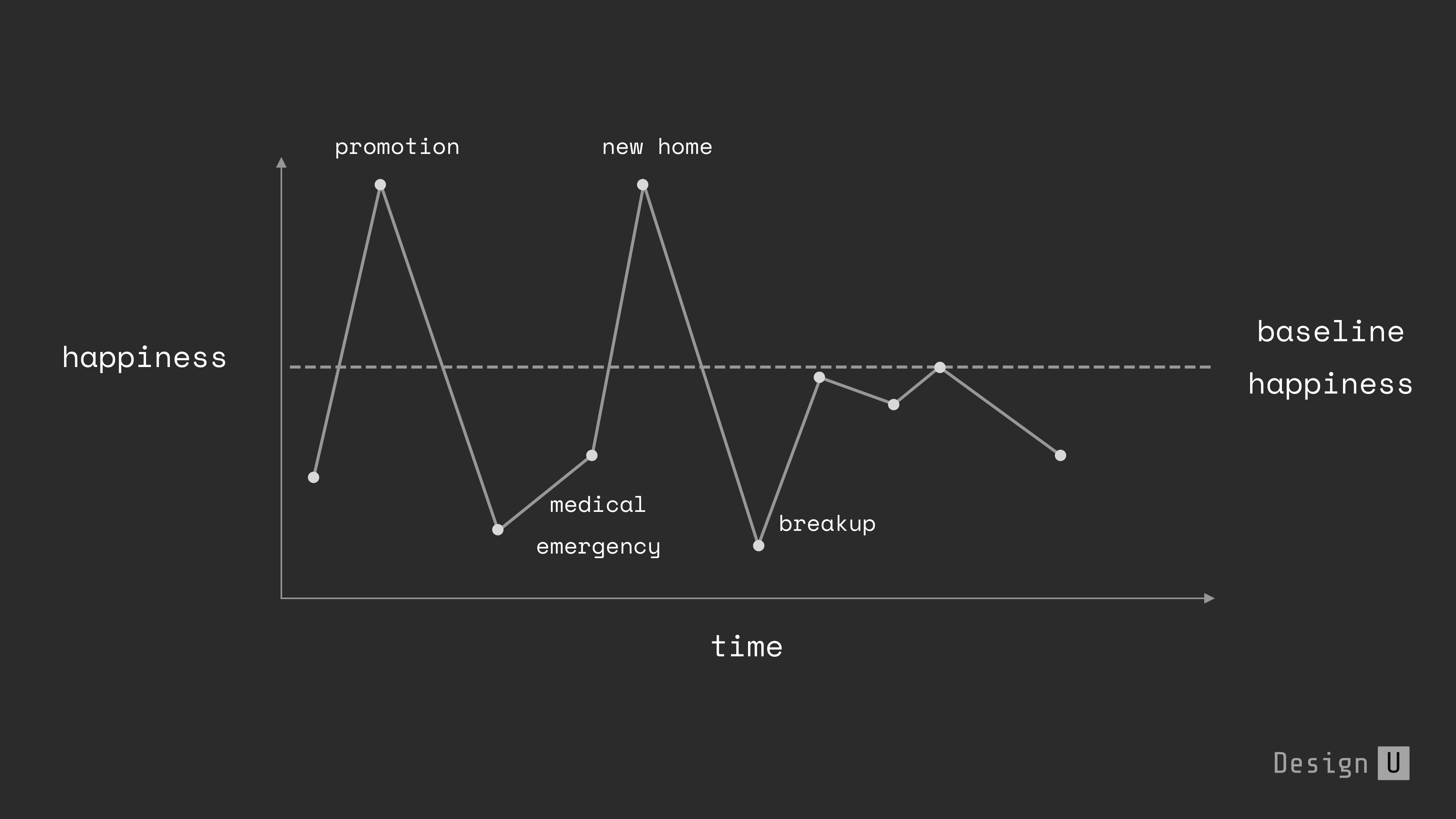

In general, on average, increasing wealth (especially past the point where all your basic needs are met) doesn’t make people nearly as happy as they thought it would. Who wouldn’t be excited about winning the lottery, right? No, this doesn’t mean that being poor is a barrel full of monkeys or that making more money doesn’t make anyone happier in the long-term. As a person makes more money, expectations and desires rise in tandem, which results in no permanent gain in happiness. The hedonic treadmill is the tendency of a person to remain at a relatively stable level of happiness despite changes in fortune or the achievement of major goals. What exactly is the Hedonic Treadmill Theory? Not sure? Let’s explain what it is and then get into specifics. Heck, you may be going through it as we speak.

You may not be too familiar with the hedonic treadmill as well but….I guarantee that you’ve experienced it (good and bad) at some point in your life events. I noticed that all of them have referenced this idea in past articles.

I occasionally get ideas for topics to write on through other personal finance blogs for healthcare professionals such as the BIG 3: This wasn’t a phrase that I’d heard of before but have experienced numerous times in my life. We suggest that shifting focus from the impact of major life changes on well-being to the impact of seemingly minor repeated behaviors is crucial for understanding how best to improve well-being.Recently I came across the idea of the Hedonic Treadmill in the fantastic book, The Happiness Curve: Why Life Gets Better AFTER 50 by Jonathan Rauch. In Study 2, we generalized these effects to other regular activities, demonstrating that people received boosts for exercise and yoga, and that these boosts, too, had a cumulative positive impact on well-being. In Study 1, we surveyed places of worship for 12 religions and found that people did receive positive boosts for attending services and that these boosts appeared to be cumulative: the more they reported attending, the happier they were. We suggest that while major events may not provide lasting increases in well-being, certain seemingly minor events-such as attending religious services or exercising-may do so by providing small but frequent boosts: if people engage in such behaviors with sufficient frequency, they may cumulatively experience enough boosts to attain higher well-being. Many studies have shown that few events in life have a lasting impact on subjective well-being because of people's tendency to adapt quickly worse, those events that do have a lasting impact tend to be negative.


 0 kommentar(er)
0 kommentar(er)
